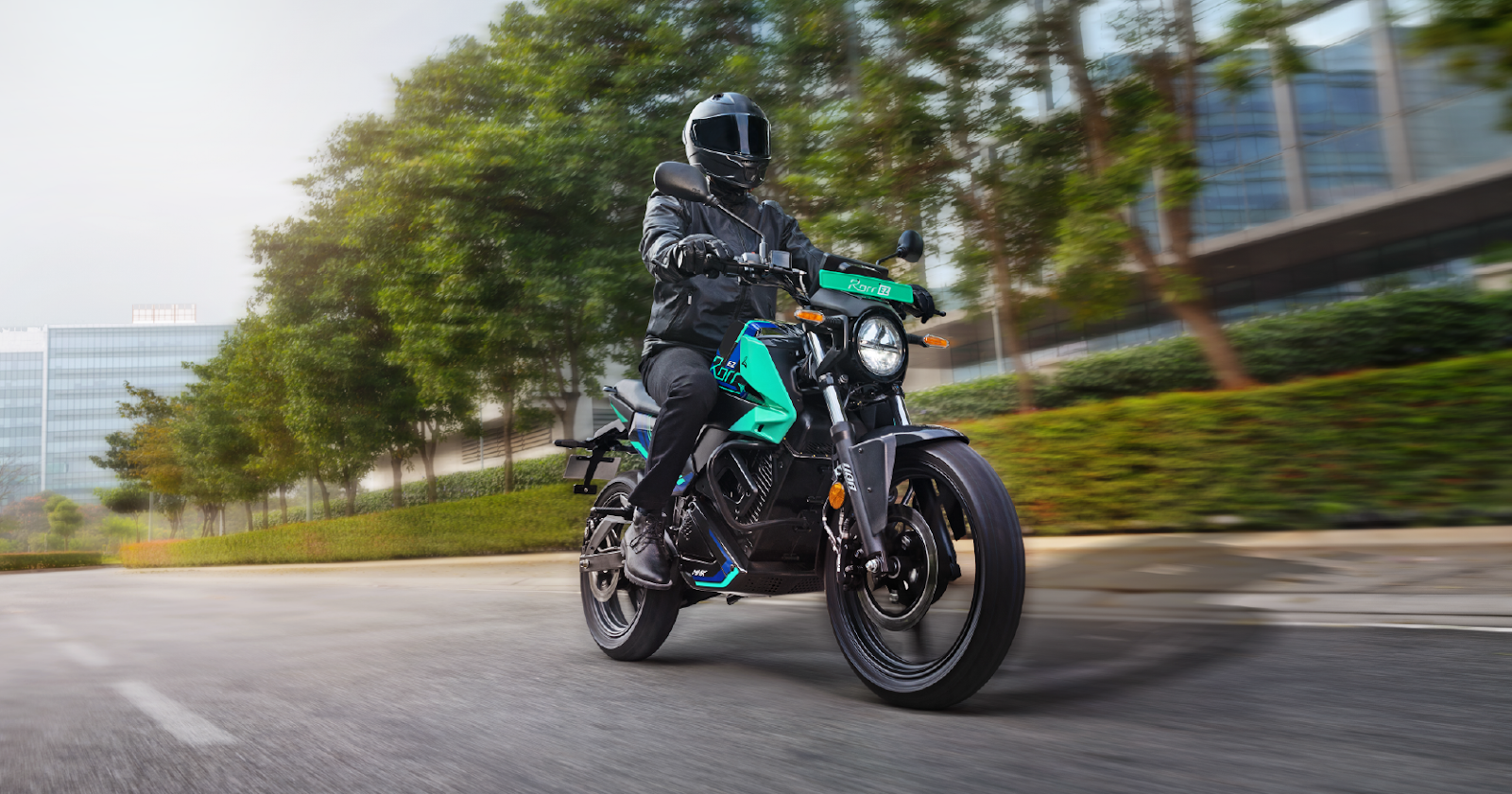- ALL
- TRENDING
- PERFORMANCE
- CHARGING
- BATTERY
- DESIGN
- TECH
- NEWS
Electric Bikes: The Sustainable Future of Urban Mobility

Table of Contents
- Impact of Urban Pollution
- Role of Electric Motorcycles in Reducing Urban Pollution
The transport sector is the second highest emitter of carbon dioxide, contributing to approximately 23% of CO2 emissions globally. The situation in India is equally bleak, where the sector contributes 12% of total CO2 emissions. However, in this alarming scenario, electric vehicles - particularly electric motorcycles - are a ray of hope as they present a sustainable and efficient alternative to petrol-powered two-wheelers.
EV two-wheelers are rapidly becoming the dominant mode of transport for daily commutes in urban areas owing to their affordability and ease of navigation through congested streets. Their biggest USP is the major role they play in reducing urban pollution.
Impact of Urban Pollution
Urban pollution is a leading cause of respiratory, lung, and cardiovascular diseases due to people inhaling harmful substances like smog and particulate matter (PM 2.5 or PM 10). According to the World Cities Report 2024, urban air pollution led to 6.7 million premature deaths annually In India alone. The 6th Annual World Air Quality Report by IQAir found that 9 out of the 10 most polluted cities in the world are in India.
Role of Electric Motorcycles in Reducing Urban Pollution
Electric motorcycles are emerging as a popular mode of sustainable transportation. Here’s how they’re making a difference:
1) Zero Emissions
Electric motorcycles have no tailpipe emissions, which makes them zero-emission vehicles. They do not release harmful pollutants like nitrogen oxides, hydrocarbons, and carbon monoxide like the traditional bikes, which cause millions of deaths. These dangerous chemicals are produced by the burning of petrol and diesel. Switching to EV bikes instead of these fossil fuel-powered motorcycles can greatly bring down air pollution in cities.
2) Decreased Noise Pollution
Conventional motorcycles have internal combustion engines (ICE), which produce vibrations and may be loud, creating a noisy riding experience. Battery-powered motorcycles, on the other hand, operate without exhaust systems or fuel combustion, which makes them significantly quieter and reduces noise pollution in busy urban areas. The added advantage of this noise pollution control is that you can hear your surroundings better which keeps you safer on the road.
3) Reduced Dependence on Fossil Fuels
Electric motorcycles are powered by advanced batteries and require lesser fossil fuels to function. Switching to electric bikes will decrease the dependency of the transport sector on fossil fuels. This shift will not only curb the need for oil extraction but will also result in fewer instances of oil spillage that adversely affects aquatic life.
4) Supports Renewable Energy
Electric bikes need electricity to get charged. While power generation still mostly relies on fossil fuels, the energy sector is rapidly shifting towards cleaner alternatives like solar, wind, hydroelectric power, and hydrogen fuels. The government is also actively encouraging this shift through schemes like the PM E-Drive. Using these renewable energy sources to charge your electric motorcycle will lead to fewer greenhouse gas emissions and carbon footprint reduction.
Wrapping Up
Electric motorcycles, promising a cleaner and greener future, are no longer just an alternative - they are a necessity. Considering the stark realities of the transport sector, the shift to sustainable mobility has become more urgent than ever.
Ready to begin your journey of eco-friendly commuting? Check out Oben Electric’s e-bikes that offer cutting-edge technologies while reducing your carbon footprint.
Book a Test Ride Now to explore the exciting features of these motorcycles that are ushering in a new era of urban mobility.




